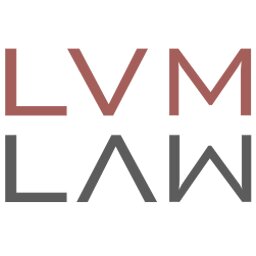Best Biotechnology Lawyers in Singapore
Share your needs with us, get contacted by law firms.
Free. Takes 2 min.
Or refine your search by selecting a city:
List of the best lawyers in Singapore
About Biotechnology Law in Singapore:
Biotechnology is a rapidly growing field in Singapore, with various laws and regulations in place to ensure the ethical and safe development of biotechnological advancements. From genetic engineering to pharmaceuticals, biotechnology covers a wide range of industries that impact our daily lives.
Why You May Need a Lawyer:
There are several situations where you may need legal assistance in the field of Biotechnology in Singapore. Some common reasons include disputes over intellectual property rights, compliance with regulatory requirements, drafting and negotiating licensing agreements, and handling mergers and acquisitions within the biotech industry.
Local Laws Overview:
Key aspects of local laws that are particularly relevant to Biotechnology in Singapore include the Biological Agents and Toxins Act, the Medicines Act, the Human Biomedical Research Act, and the Patents Act. These laws govern the research, development, production, and commercialization of biotechnological products in Singapore.
Frequently Asked Questions:
1. What is the process for obtaining a patent for a biotechnological invention in Singapore?
In Singapore, the process for obtaining a patent for a biotechnological invention involves filing a patent application with the Intellectual Property Office of Singapore (IPOS). The application will undergo examination to determine its novelty, inventive step, and industrial applicability before a patent is granted.
2. Are there specific regulations for conducting clinical trials for biotechnological products in Singapore?
Yes, there are specific regulations for conducting clinical trials for biotechnological products in Singapore. The Health Sciences Authority (HSA) is the regulatory authority responsible for approving and overseeing clinical trials in Singapore to ensure the safety and efficacy of biotechnological products.
3. What are the implications of breaching intellectual property rights in the biotechnology industry?
Breaching intellectual property rights in the biotechnology industry can lead to costly legal disputes, financial losses, and damage to reputation. It is important to seek legal advice to protect your intellectual property rights and avoid infringement claims.
4. How can a lawyer assist in drafting licensing agreements for biotechnological products?
A lawyer can assist in drafting licensing agreements for biotechnological products by ensuring that the terms and conditions of the agreement protect your rights and interests. They can also negotiate on your behalf to secure favorable terms and mitigate risks.
5. What role does the Competition and Consumer Commission of Singapore (CCCS) play in regulating the biotechnology industry?
The CCCS plays a role in regulating the biotechnology industry by enforcing competition laws to prevent anti-competitive behavior and promote fair competition. They investigate complaints of anti-competitive practices and mergers that may harm consumers or other businesses in the industry.
6. How can a lawyer assist in resolving disputes over biotechnological inventions?
A lawyer can assist in resolving disputes over biotechnological inventions by providing legal advice, conducting negotiations, and representing clients in mediation, arbitration, or litigation proceedings. They can help protect your rights and interests in intellectual property disputes.
7. What are the regulations for importing and exporting biotechnological products in Singapore?
The regulations for importing and exporting biotechnological products in Singapore vary depending on the nature of the products. The Singapore Customs and the Agri-Food and Veterinary Authority of Singapore (AVA) regulate the import and export of biotechnological products to ensure compliance with safety and quality standards.
8. Are there specific laws governing the use of genetically modified organisms (GMOs) in Singapore?
Yes, there are specific laws governing the use of genetically modified organisms (GMOs) in Singapore, including the Genetically Modified Organisms Safety Act. This legislation regulates the research, development, production, and release of GMOs to protect human health and the environment.
9. How can I ensure compliance with data protection laws when conducting research in the biotechnology industry?
To ensure compliance with data protection laws when conducting research in the biotechnology industry, you should seek legal advice on data privacy requirements, implement data protection measures, obtain consent from research participants, and secure data storage and transfer protocols.
10. What are the legal implications of bioethics in the field of biotechnology in Singapore?
The legal implications of bioethics in the field of biotechnology in Singapore involve ethical considerations related to the use of biotechnological advancements, such as human genetic manipulation, assisted reproductive technologies, and stem cell research. It is important to comply with bioethical guidelines and seek legal advice to navigate complex ethical issues in biotechnology.
Additional Resources:
For more information on Biotechnology laws and regulations in Singapore, you can refer to the Singapore Biotech Association, the Intellectual Property Office of Singapore, and the Health Sciences Authority websites. These organizations provide valuable resources and updates on the biotechnology industry in Singapore.
Next Steps:
If you require legal assistance in the field of Biotechnology in Singapore, it is recommended to consult with an experienced biotechnology lawyer who can provide tailored legal advice and representation based on your specific needs and circumstances. You can schedule a consultation to discuss your legal concerns and explore potential solutions to protect your interests in the biotechnology industry.
Lawzana helps you find the best lawyers and law firms in Singapore through a curated and pre-screened list of qualified legal professionals. Our platform offers rankings and detailed profiles of attorneys and law firms, allowing you to compare based on practice areas, including Biotechnology, experience, and client feedback.
Each profile includes a description of the firm's areas of practice, client reviews, team members and partners, year of establishment, spoken languages, office locations, contact information, social media presence, and any published articles or resources. Most firms on our platform speak English and are experienced in both local and international legal matters.
Get a quote from top-rated law firms in Singapore — quickly, securely, and without unnecessary hassle.
Disclaimer:
The information provided on this page is for general informational purposes only and does not constitute legal advice. While we strive to ensure the accuracy and relevance of the content, legal information may change over time, and interpretations of the law can vary. You should always consult with a qualified legal professional for advice specific to your situation.
We disclaim all liability for actions taken or not taken based on the content of this page. If you believe any information is incorrect or outdated, please contact us, and we will review and update it where appropriate.
Browse biotechnology law firms by city in Singapore
Refine your search by selecting a city.














